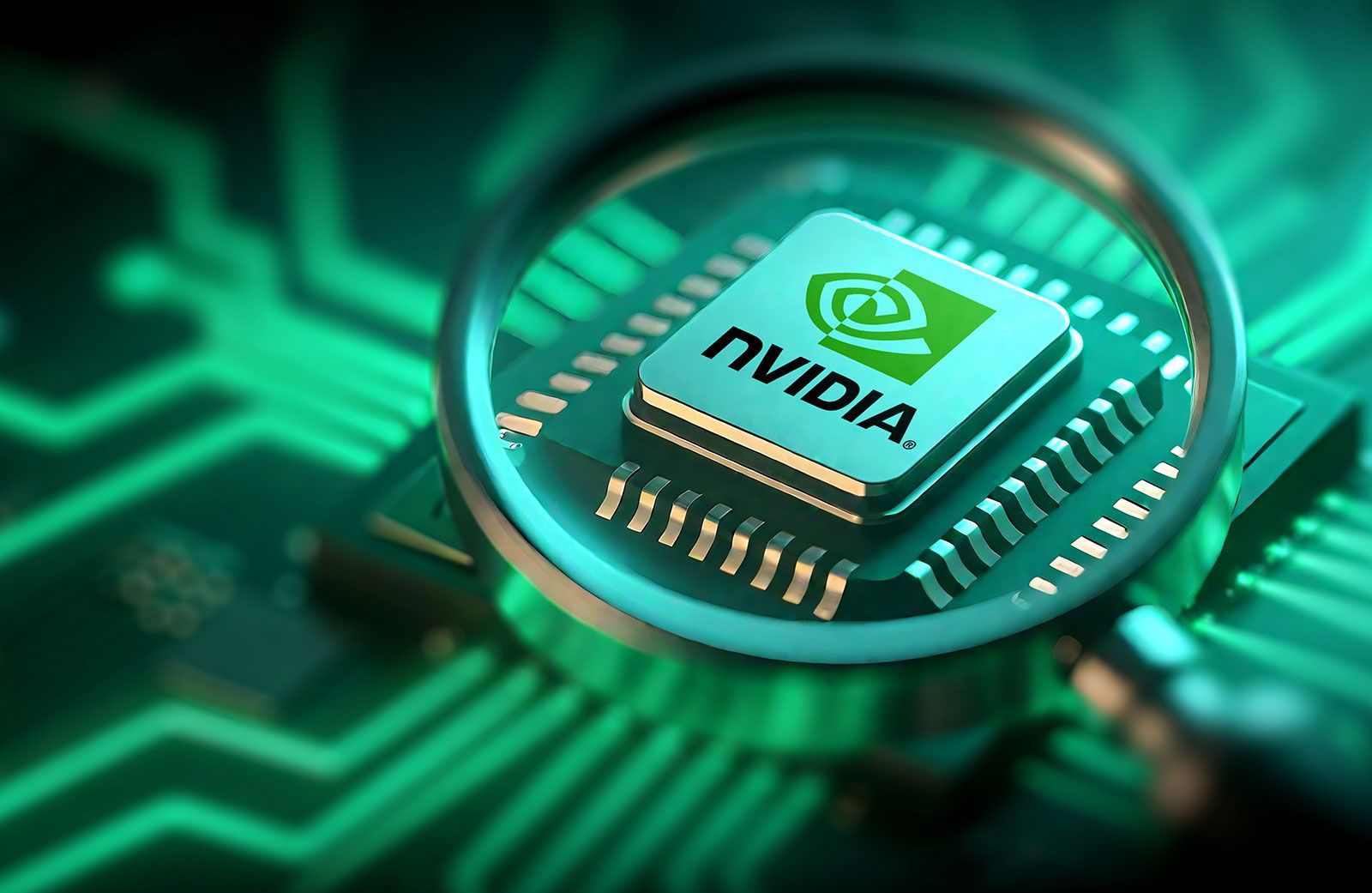Nvidia shares dip as chipmaker’s earnings come in good — but not amazing

A Nvidia chip on August 1 in Beijing
By Clare Duffy, CNN
New York (CNN) — After a stunning streak that saw Nvidia blow Wall Street’s projections out of the water quarter after quarter, the chipmaker on Wednesday reported revenue for the July quarter that was essentially in line with expectations. Investors aren’t loving it — the company’s shares dipped as much as 3.5% in after-hours trading immediately following the report.
Wednesday’s report marked the latest chance for Nvidia to provide a window into how its business has been affected by President Donald Trump’s shifting trade policies, as the American tech giant has become a bargaining chip in the US-China trade war. The company warned in May that it expected to take an $8 billion hit to revenue because of export controls on shipments to China.
Nvidia earned $46.7 billion in revenue for the quarter, up 56% from the same quarter in the prior year and just slightly ahead of the $46 billion analysts had expected. Net income reached $26.4 billion, up 59% year-over-year, and a slightly larger beat on the $24.7 billion Wall Street had projected. And once again, Nvidia was unable to sell its H20 chips to China, the market that last year made up 13% of its revenue.
Most executives would cheer year-over-year growth rates like these. But the results also mark a slowdown from the 122% year-over-year revenue growth and 168% year-over-year profit growth the company reported in the same period last year.
“Coming off a new rally to all-time highs, being merely on the mark in terms of revenue simply wouldn’t cut it for Nvidia this time around,” Thomas Monteiro, senior analyst at Investing.com, said in an email following the results. “Saying the stock was priced for perfection would be an enormous understatement, as it was, in fact, in need of another massive beat.”
As the bellwether for the larger AI ecosystem, Nvidia’s slowdown could fuel concerns about a possible correction in the market. Earlier this month, OpenAI CEO Sam Altman warned of an “AI bubble,” and MIT researchers found most companies aren’t actually making any money from implementing AI. (Although, in fairness, companies also don’t tend to go on doubling their earnings quarter after quarter forever.)
Still, Wall Street had been optimistic leading up to Wednesday’s report. Nvidia CEO Jensen Huang has a close relationship with Trump and the president did a recent about-face on advanced chip sales to China. There are also reports that Nvidia has a new China-specific chip in the works.
“We believe Nvidia earnings on deck is another positive catalyst for tech stocks that will further remind investors this is still only the bottom of the 2nd inning” in the game that is the AI revolution, Wedbush analyst Dan Ives said in an email on Monday.
And Nvidia says it continues to have a long runway. Chief Financial Officer Colette Kress said on a call with analysts Wednesday that the company expects to benefit from $3 trillion to $4 trillion in AI infrastructure spending by the end of the decade.
Nvidia shares (NVDA) have risen more than 30% since the start of this year. In July, it became the world’s first public company valued at $4 trillion.
The China flip-flop
Earlier this year, the Trump administration cracked down on sales of Nvidia’s H20 AI chip to China. This effectively cut off the chipmaker’s business with the country after it had developed the product specifically to comply with earlier trade restrictions. In the first quarter, Nvidia said the restrictions cost it around $7 billion in charges from unfulfilled sales and lost revenue.
Nvidia said in its Wednesday release that there were no sales of H20 chips to customers in China during the July quarter. However, it added that it “benefited from a $180 million release of previously reserved H20 inventory, from approximately $650 million in unrestricted H20 sales to a customer outside of China.”
Last month, Nvidia said it would restart sales of the H20 after receiving approval from the White House. And weeks later, Nvidia, along with fellow chipmaker AMD, agreed to pay the US government 15% of its chip sales to China in exchange for an export license, an unprecedented quid pro quo that arose after a meeting between Huang and Trump.
Several of Nvidia’s China-based customers received export licenses to buy H20s after the US government began reviewing applications in July, Kress said. But she added that US officials have yet to publish regulatory guidelines around the 15% payment, so the company was unable to ship H20s to China during its second quarter.
“If geopolitical issues subside, we should ship $2 (billion) to $5 billion in H20 revenue in Q3 and if we had more orders, we can bill more,” Kress said. “Every license sale we make will benefit the US economy and US leadership in highly competitive markets.”
Huang has argued that if American technology companies are restricted from selling to China, Chinese developers will simply create their own alternatives, which could undermine the US in the AI race.
The agreement is poised to restore Nvidia’s access to the China market. But earlier this month, a social media account connected to Chinese state media questioned whether Beijing will allow the chips to be sold because of concerns around security risks. (Nvidia has repeatedly denied that its products have backdoors or spyware.)
Nvidia said on Wednesday it expects revenue from the current quarter to come in at $54 billion, plus or minus 2% — essentially in line with Wall Street’s expectations — and added that it had not assumed any H20 shipments to China in that outlook.
“The China market, I’ve estimated to be about $50 billion of opportunity for us this year, if we were able to address it,” Huang said on the earnings call. “It is the second largest computing market in the world, and it is also the home of AI researchers.”
Now, Nvidia is said to be working on a new, more powerful AI chip for China, believed to be called the B30, that it hopes will pass muster with Beijing while remaining compliant with US export restrictions, according to reports from Reuters and the Wall Street Journal.
“We evaluate a variety of products for our roadmap, so that we can be prepared to compete to the extent that governments allow,” an Nvidia spokesperson told CNN when asked for comment on the reports. “Everything we offer is with the full approval of the applicable authorities and designed solely for beneficial commercial use.”
Investors will likely be hoping for some insight from Huang about the state of the project in the company’s earnings call on Wednesday.
Paul Meeks, managing director of investment banking firm Freedom Capital Markets, said Nvidia’s shares “could be muddied because of Trump’s on-again, off-again export controls,” in the short term.
“I bet that there’ll be a dip in the stock, not necessarily after they report, but sooner or later & it’ll probably be a result of Chinese trade talks & not the company’s fundamentals at all,” he said in emailed commentary Tuesday.
Huang said the company is hoping to seek US government approval for shipments of chips based on its more advanced Blackwell technology to China. Trump said earlier this month that he’d consider allowing Nvidia to sell the Blackwell chip if Nvidia pays the US government an even steeper cost, potentially 30% to 50% of sales of the chips to China.
“We’re talking to the administration about the importance of American companies being able to address the Chinese market,” Huang said. “We just have to keep advocating the sensibility of and the importance of American tech companies to be able to lead and win the AI race and help make the American tech stack the global standard.”
The-CNN-Wire
™ & © 2025 Cable News Network, Inc., a Warner Bros. Discovery Company. All rights reserved.



